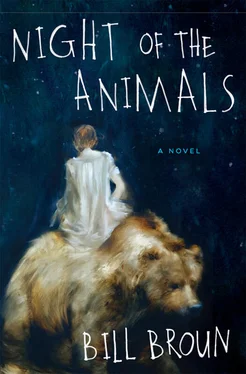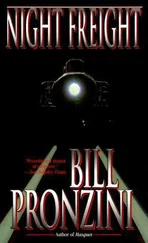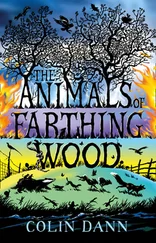The two boys had buried it quickly, dug a little hole and covered it in pink mallows and purple betony, but Drystan would not stop weeping. Cuthbert had almost forgotten that, and now he could see Dryst’s face above him, weeping again. He was a brilliant child, and could go from hard lad to sensitive so quickly, Cuthbert remembered — he could be so terribly sincere. He was a good boy, a very good little lad.
“A’m worse than evil,” Dryst had said as they brushed soil over the snake, so genuinely remorseful. “I’ll pay for this — yow’ll see. Them Boogles will get me. Maybe both of us.”
After the burial, they went on exploring the forest. Drystan did seem to lighten up a bit — just a bit, at first. Cuthbert found pieces of old charcoal around some of the old woodland hearths, and he beaned Drystan with them a few times rather beautifully, and eventually Drystan fought back, and they were having fun again. Then they were laughing again, running down that hill in the forest like young puppies, not minding their bearings, speeding through the waist-high maidenhair and bracken, and they ran and laughed and ran and laughed and it was as if they were carving a path through a flood of green and fields of glee that would go on and on and on. Drystan turned around and looked at Cuthbert, and it was the last time he saw his brother’s face alive. He was smiling, but he looked sad, too, as if he knew.
He went back in his memories to the terrible walk back to the cottage, after Drystan vanished. He saw, on its hind legs, the same giant river otter he’d seen and heard under the water with Drystan, trying to save him, or to take him to the animal world. There, near a bend in the brook he could see and hear, again, more softly now, more sweetly, how Drystan had called out underwater to him, and how the words sounded like gagoga maga medu , at least as Cuthbert came to remember them.
There had been an inquest by the county authorities. The death was ruled a “misadventure.” Cuthbert, only six years old, could not be persuaded that “Boogles” hadn’t murdered Drystan. His granny said it wasn’t so, again and again, until the day she died, soothing Cuthbert as best she could.
“Inna wasn’t them Boogles, Cuddy. It wasn’t nothing with the forest.” But he never wholly believed it, and he didn’t think his granny did either.
He thought of his gran for a moment as he gazed at the whiteness above. He wondered if he might see her in the next world. Winefride Wenlock had leaned even more heavily upon “owd” Wyrish folkways after Drystan’s drowning. She used to tell Cuthbert that she had been careful to make sure neither his brother nor he had gazed at a looking glass before age one, but somehow she must have failed with Drystan, she must have. She claimed that white birds were a sign of death, and if Cuddy were playing alone in the garden and a seagull or white owl appeared, he was to “scrobble indoors” right away. One time, when Cuthbert was down with bronchitis, his gran came into his room late at night with scissors. Her Alfie had died of pneumonia, and lung ailments in general obsessed her. He felt her bend down and carefully clip hair from the nape of his neck. He asked her, the next day, why she had taken the hair, and she related that she counted out twenty pieces of the sweet brown strands, folded them into a slice of buttered bread, and fed it all to a stray dog. The dog would take the disease “back to the Boogles,” she said.
“Astrid,” Cuthbert gasped, raising his hand up toward this stranger, this kind soul who had come to love him, for no apparent reason, at the end of his life. The cat, Muezza, sat on the bed, paws in front, looking puzzled and detached.
“Yow, love,” said Cuthbert. “Yow. My answer to gagoga maga medu . My answer is. ”
But he was gone.
“ Gagoga maga medu, ” she said. “I hear you.”
It was the life-phrase, the blessing, the secret otterspaeke of visions. It came from the same eternal underwater world of the forest, where Drystan and his gran and his lost grandfather’s body lived, where the Wonderments lived, and where Cuthbert could now return.
It said, take this dream, take this prayer of otterspaeke, take this phrase of a new tongue and new tales, and beneath the many-colored bows in the clouds of the whole world, let not the voices perish.
WRITTEN ACROSS FOURTEEN YEARS, THIS NOVEL left a deep elephant trail of indebtedness to many people around the world. I suspect that some of those who helped me may have, understandably, long forgotten this project — but I haven’t them, I hope.
I wish especially to acknowledge Sheikh Ahmed; Rachael Ashton of Chester Zoo (UK); my brother Patrick Bracken; the late American art historian Bruce Chambers; Hans Coster; James Gardner; Professor Andrew Goldstone of Rutgers University; zoo planner and consultant David Hancocks; my H.P.; linguist and folklorist Alf Jenkins; Mike Jordan of Chester Zoo; Traugott Lawler, professor emeritus of English at Yale University; Dr. Edward Lundeen; Dr. Bryan Serkin; the Royal Parks; founder of the London Emergency Services Liaison Panel, Anthony Speed, CBE; Catherine Slater; and the participants of the VillaTalk.com online forum, who offered generous insights into West Midlands speech and usage.
I thank Brad and Lynn Thompson of Galveston, Texas, for providing a place to write for two summers; and Robert “T” Farris Thompson of Yale University, who adopted me as a resident fellow at Timothy Dwight College, allowing me time and lodging to write.
In Britain, special thanks to Alan Hollinghurst, my thesis committee director and a great general encourager. Certain editors in London offered me interesting and flexible employment while I lived in Finsbury Park, wrote, and hung around the zoo: Paul Finch, of the Architects’ Journal ; Tim Lusher, of the Guardian newspaper; and Lindsay Duguid, formerly of the TLS .
Three of my colleagues at East Stroudsburg University — Peter Hawkes, Nancy Van Arsdale, and Andi McClanahan — gave the drafting of this novel a legitimate place in my work-life.
I shall remain forever appreciative to my dear friend Marian Thurm, who so reassuringly read early drafts of the novel.
In England, my cousin Kimberly Shaw gave me critical insights into Midlands history, culture, and language. Her father and my friend, Richard T. Elsmore, helped me understand the depth of my own connections to an England of long ago and of tomorrow. My cousin Mary Finnegan assisted unforgettably in helping me travel to London.
The many stories of my father, William A. Broun, mostly set in the Worcestershire and Birmingham of the last century, form the basis of some of this novel’s inner mythology.
Lavish credit, served on the best china, must be given to my longtime friend Pamela Diamond for daring me to take on such a vast story and for reading early drafts.
At Ecco, I am deeply thankful (and such phrasing sounds far too trifling) to Megan Lynch, whose ingenious editing and unswerving encouragement have answered many a prayer; to her talented, diligent assistant editor, Eleanor Kriseman; and to the rest of the editorial and art teams.
Almost inestimable gratitude is owed to my mentor, Mary Gaitskill, who has remained an indefatigable friend, and who read and critiqued several drafts of this novel.
Mary also introduced me to my brilliant and life-changing agent, Jin Auh, of the Wylie Agency. I also thank Jin’s wonderful assistant, Jessica Friedman, and indeed all the Wylie staff.
I thank my sweet son, Tobias, who taught me much about the two boys at the center of this story, and who put up with a distracted dad far too often. (And I assure you, Toby, that the promised novel about English setters who battle in intergalactic space is coming — someday.)
Читать дальше












